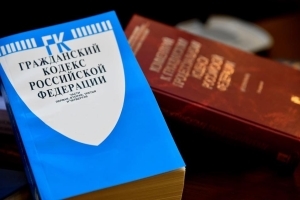
When a deceased testator makes a will during his lifetime, this greatly simplifies and speeds up the inheritance process.
The notary does not need to look for his relatives or calculate the shares of their inheritance. The testator himself indicates in the text of his last document who should receive what and in what amount after his death.
But how much time the heirs have to receive their inheritance is not indicated in the will. The validity of a will after the death of the testator is, as a general rule, unlimited. However, there are still exceptions to this rule.
Will Basics
A will has strict requirements for its execution and certification . Any inaccuracies in its form or content may become the basis for declaring the document invalid, which will lead to the fact that the inheritance will be distributed among the heirs not according to the will of the deceased testator, but according to the norms of the Civil Code of the Russian Federation.
The will must contain the following information:
- Date of document preparation;
- Place of its compilation (populated area);
- Information about the testator and his heirs;
- Information about inherited property, the size of inheritance shares;
- Other conditions introduced by the testator;
- Testator's signature;
- The notary's signature, his seal and a record of certification of the document.

The testator has the right to keep the contents of the will and the fact of its existence secret . The same obligation arises for the notary and other persons involved in the process of drawing up and certifying a document.
After the death of the testator, the heirs must appear before the notary to write an application for entry into the inheritance.
As a rule, you should contact a notary at the last place of residence of the testator. If the inheritance case is still opened by another notary, then you can find out where exactly you should contact it in any notary office.
As soon as the period allotted by law for entering into an inheritance has expired, the notary will issue the heirs with certificates of the right to inheritance.
This document does not confirm ownership of the inherited property; it will have to be received later on the basis of a certificate of inheritance.
To shorten the period of entry into inheritance, heirs can collect applications for entry into inheritance or refusals of inheritance from all other relatives in advance and submit them to the notary.
In this way, you can significantly speed up the procedure for inheriting property under a will. Moreover, the list of applicants for it is always clearly indicated in the text of the will. With inheritance by law, this procedure is much more complicated and longer.
How long does a will last?

The will comes into force from the moment of death of the testator.
Does a will have a validity period? This information is not directly indicated in the norms of the Civil Code of the Russian Federation. This gives grounds to conclude that the last will of the testator is valid indefinitely - one year or 10 years after his death.
The validity of a will for inheritance can be limited by any time frame only if it is contested or declared invalid.
Duration of validity during the life of the testator
A will is a legally valid document until the last will of the testator is carried out.
However, during his lifetime, the testator can rewrite his will a huge number of times. There are no restrictions on this manipulation. And every time the testator draws up a new will, the text of the previous one will lose its legal force.
The testator does not have the right to indicate in the will the date of entry into the inheritance.
Indication of such a period in the text of the will is the basis for declaring the document invalid and challenging it in court by any of the interested parties in the inheritance case.
Duration after the death of the testator
 After the death of the testator, the heirs must prove themselves in two alternative actions:
After the death of the testator, the heirs must prove themselves in two alternative actions:
- Enter into inheritance;
- Refuse to inherit.
The norms of the Civil Code of the Russian Federation set the period for entering into inheritance at six months.
You can refuse to inherit property not only by issuing a written refusal, but also by ignoring the fact of entering into an inheritance.
Within 6 months after the death of the testator, the heirs are required to apply for the intention to receive the inheritance to a notary . If they do not do this within the period established by law, this will be considered a refusal to enter into inheritance.
But situations are possible when the heir simply did not know about the death of a relative or the existence of his will for six months. That is why he missed the deadline for entering into inheritance. This will be considered by the court as a valid reason for missing the deadline. But the heir will have to prove it in court.
The legislation gives heirs 3 years to restore the missed deadline for entering into inheritance.
The issue of reinstating the term is always decided exclusively by the court. The remaining heirs, as a rule, speak out against this, because by that time they usually already sell the property they inherited.
The period for restoration begins to count not from the moment of death of the testator, but from the moment when the heir learns of his death.
That is, in fact, he can only find out after 20 years about the death of the testator. And it is from this moment that he has 3 years to restore his inheritance rights.
How long does it take to challenge a will?

Depending on the grounds for challenging, there are two types of terms in inheritance:
- 1 year – challenging wills created under the influence of blackmail, threats, deception and violence;
- 3 years – invalidation of a will created in violation of the rules of drafting (without notarization, drawn up by an incapacitated citizen).
The limitation period begins from the moment the heir learns of a violation of his inheritance rights in connection with a disputed or completely void will. That is, only a person interested in the outcome of the inheritance case can bring a claim in court.
It is better to file a claim as early as possible - within 6 months . This is due to the fact that after six months the illegitimate heirs will receive certificates of the right to inheritance and will be able to dispose of it. After this, it will be much more difficult to regain your rightful share.
It is possible to file a claim in court to declare a will invalid or to challenge it in 2023 only after the death of the testator.
How can the right of inheritance be restored?

The notary, as a rule, draws up a written consent to the redistribution of the inheritance, taking into account the rights of the newly announced heir. But it is not always the case that the remaining heirs make such concessions to the newcomer in the inheritance business.
But if the heir did not manage to declare himself within 6 months, the property will have to be returned only through the court.
In order to restore his rights to inherit property, the heir will need to present to the court strong evidence of unintentionally missing the deadline for entering into the inheritance.
If the heir missed the deadline for entering into inheritance due to his negligence or intentionally, the court will refuse to restore his rights.
The following circumstances in the life of the heir may be valid reasons for missing the deadline:
- The heir did not know about the death of a relative and could not know about it due to his long departure;
- The heir lives in a significantly remote area and cannot have contact with relatives;
- The heir has a serious illness due to which he has temporarily lost his legal capacity or the ability to move freely;
- Other heirs or other persons deliberately concealed information about inheritance from the heir.

Special cases of terms of inheritance under a will
Does a will have a statute of limitations for various types of property or property rights and obligations? As a general rule, the statute of limitations for the last will of the testator is not limited in any way.
Period for inheriting an apartment
 Inheriting an apartment is no different from inheriting another type of property . The heir can receive the apartment bequeathed to him at any time after the death of the testator. But lawyers recommend resolving this issue quickly.
Inheriting an apartment is no different from inheriting another type of property . The heir can receive the apartment bequeathed to him at any time after the death of the testator. But lawyers recommend resolving this issue quickly.
The apartment, which will be transferred to other heirs or the state, may be sold by the time the heir learns about his share in it.
A bona fide purchaser of residential space will be protected by law, and it will be very difficult to regain inheritance rights. In addition, the building in which this apartment was located may be destroyed by a natural disaster or demolished as uninhabitable.
In such a situation, it will be impossible to receive your inheritance. In this case, the will of the testator will be considered irrelevant.
Notaries, as a rule, when it is impossible to independently search for heirs, publish wanted ads on their websites or third-party media platforms. It is better to regularly review these advertisements so as not to miss your last name in the search for heirs.
House inheritance period
 The validity period of a will for a house is similar to the indefinite period for an apartment . That is, both after a year and after 15 years, the will of the testator in relation to the house will be relevant.
The validity period of a will for a house is similar to the indefinite period for an apartment . That is, both after a year and after 15 years, the will of the testator in relation to the house will be relevant.
Again, with a high degree of probability, the inherited property, after registration of ownership by the heirs, is sold on the market. Buyers today, when purchasing houses inherited by the seller, insure them.
Thus, there will be no way to take away their legally purchased house. It will be simply impossible to achieve restoration of the terms and rights to inherited property.
You can enter into an inheritance only after the death of the testator, because during his lifetime he is free to change his desire to inherit his property many times.
As soon as the testator dies, the heirs need to declare themselves to the notary as soon as possible, fill out an application and enter into the inheritance.
However, the legislation allows you to become the happy owner of bequeathed property even 30 years after writing the will.
In this sense, the statute of limitations for entering into an inheritance under a will is in no way limited. They can be changed only in relation to those wills that are recognized as void or voidable.
Validity of a will after the death of the testator
It is advisable for the heirs to take over their rights in the shortest possible period of time. It is not advisable to stretch the boundaries of document registration for the testator’s property. This will help you avoid going to court and do everything quickly.
However, sometimes the applicant cannot accept the inheritance under the will on time or does not know about its existence for a long period.
What happens to the will after the time periods expire? Does it have a certain validity period or will it expire?
Is there a time limit for a will?
A testamentary document comes into force upon the death of the testator. It is impossible for third parties to open or familiarize themselves with the contents of such paper. Then the time comes for the applicants to make a decision on entering into the inheritance or refusing, as provided for by regulations.

For this, there is a period established by law, which is 6 months from the day following the day of death of the testator. During the period of time, the heir must:
The legislation provides a wide choice of methods for registering rights, depending on the position of the applicant and the purposes of using the received property.
If none of the methods was implemented on time, then another period of time, limited by law, takes place. It is equal to 3 years and is set aside so that the heir can restore the missed period in court if there are good reasons.
The final decision on restoring the rights of the applicant is made by the court, based on the totality of the circumstances of the case.
During this entire period of time, the will does not lose its validity.
It is necessary to count the passage of time not from the moment of death of the testator, as is the case with the deadline for accepting an inheritance, but from the moment when the heir lost the reason that prevented the timely acceptance.
For example, if the applicant did not know about the right that had arisen and found out 30 years after the death of the testator, there is another 3 years to try to restore the lost right in court.
The countdown begins from the moment the heir receives notification (telegram, letter) of the death of the testator and his name is indicated in the will.
All this time, the last will of the deceased will not lose relevance and will have legal force. No time periods can diminish or completely cancel the meaning and significance of the paper.
Thus, the last will, as a document, has no time limit. Coming into force after the death of the testator, it continues for an indefinite period. If it is lost or not found by the heirs, you should contact the notary office at the place where the inheritance was opened. A second copy should be kept there.
Duration of the will for an apartment
The validity period of a testamentary document for an apartment is similar to the validity period of such a document for any other types of property. The subject of inheritance in this case is not of fundamental importance and does not change the validity of the paper over time.
It follows that the testamentary document will not lose force after any period of time.
If it turns out that the heir under the will does not accept the apartment on time and for a long time after the expiration of time, the testator’s last will will not lose its legal significance.

However, the more time passes, the more difficult it will be to prove the right to inheritance in court.
Also, the inherited apartment, if no one accepts it after the expiration of the time established by law, will become the property of the state. In this case, the heir faces a lengthy court case.
However, it is possible to refer to the will in such cases; it will serve as one of the proofs of the rights of the interested party in the case.
However, notaries often publish advertisements about wanted heirs, and an applicant for an apartment under a will has a real chance to find out about the right that has arisen.
That is why it is advisable to pay attention to relevant publications both on notary websites and in printed mass media. In addition, in the vast majority of cases, interested parties themselves seek to find out about a possible inheritance.
This can be done through mutual friends, relatives and through requests to the relevant authorities.
Statute of limitations for a will
The statute of limitations is the period of time after which a legal action or document loses its significance.
Many decisions, debts, obligations, and legal procedures lose significance after the expiration of the statute of limitations period established by law.
A will, as a document drawn up from the testator’s orders, does not have a specific limitation of limitation. It remains valid after 10, 20 or more years.
However, there is a statute of limitations for accepting the estate under a will. It is equal to 3 years after the interested person has the opportunity to acquire rights.
Thus, the documented last will of the testator has no limitation in validity and has no limitation of limitation. It retains its original meaning years after entry into force.
By making a will, the testator forever determines the fate of the property and the order of distribution between the claimants.
If the testamentary document has not been contested, as a result of which it has been canceled or partially annulled, it has legal significance indefinitely.
Validity of a will after the death of the testator, statute of limitations for inheritance
315 views
Each person can dispose of the property belonging to him at his own discretion. Property can be gifted, sold or inherited. One of the ways of alienation is by will.
The administrative document allows you to determine not only the circle of heirs, but also the list or size of shares of the property that they will receive. If necessary, the testator can draw up two wills - one for the apartment, the second for the house and land.
However, the validity of the order after the death of the testator is limited by law.
Does a will have a statute of limitations?
Once a will has been properly executed, the document has no statute of limitations. However, the owner has the right to change or cancel the expression of will at any time. He can also change the volume of property and the composition of the heirs.
A citizen can draw up one will , several wills for different types of property, and a testamentary disposition for a bank deposit. Each of the documents will be valid to the extent that it does not contradict other orders.
If the new will contradicts the previous one, then the old document becomes invalid. In the event of the death of the owner, the division of the inherited property will take place according to a new order. Other citizens, including heirs, are not granted the rights to challenge or change the will during the life of the testator.
Validity of a will after the death of the testator
You can enter into inheritance rights under a will within 6 months . The countdown of the period begins depending on the reasons for opening the will.
The procedure for calculating the duration of a will
No. Reason for opening the inheritance Starting date| 1 | If there was a biological death of the owner | The period begins to be calculated from the day following the day of death |
| 2 | If a citizen is declared dead through court | The period begins to be calculated from the day following the day the court decision enters into legal force |
| 3 | If the relatives of the deceased established the fact of death in court | The period begins to run from the day following the day of death, established by the court |
Consequences of missing deadlines
The presence of an order does not automatically mean acceptance of the inheritance. The will of the applicant must be expressed in specific actions.
The potential heir must submit an application to the notary's office or take actions that indicate acceptance of the property. The action must be completed within 6 months from the date of death of the testator.
Violation of the deadlines for accepting the deceased's property under the will is fraught with loss of rights to inheritance. In such a situation, the relatives of the deceased citizen are called upon to inherit.
Children, parents, and the spouse of the testator can be the first to claim the property. Then the right of inheritance passes to second-degree relatives - brothers/sisters, grandparents.
If none of the relatives declare their rights, the property will be recognized as escheat. The recipient of such property will be the state represented by local authorities.
Restoring the validity of a will
The recipient may apply to the court to restore the period for accepting the inheritance. However, this requires a compelling reason.
For example, the applicant did not know about the death of the testator, was on a business trip abroad, and was undergoing a long course of treatment. If there are good reasons, the courts usually restore time for registration of inheritance.
If other applicants managed to accept the property, then the certificate issued to them is canceled.
The law sets a limitation period for filing a claim. It lasts 6 months after the reason for absence disappears. Otherwise, the court will refuse to satisfy the claim.
Duration of validity of the will upon actual acceptance of the inheritance
Often, heirs under a will accept property after the fact. There is no period established for such citizens to contact a notary after accepting an inheritance .
The only condition is that written evidence of acceptance of ownership will be required. Otherwise, the notary will not issue a certificate.
As a result, the heir will have to go to court. If the court satisfies the applicant's demands, then the ownership is registered on the basis of a court decision. One of the additional documents that the heir can present as proof of his rights will be a will.
Time limit for renunciation of inheritance under a will
A citizen is not obliged to register an inheritance. Recipients may waive their rights to the deceased's estate.
The reasons for such decisions are different - the low value of the asset, the high cost of registering an inheritance, the applicant living in a remote region, the presence of other relatives, lack of interest in the property. They do not need to be shown on the application.
If desired, the applicant can assign the property to one of the co-heirs. You can select a beneficiary only from among the heirs under the will (Article 1158 of the Civil Code of the Russian Federation).
An absolute refusal implies the transfer of property rights to the remaining applicants. If there are other heirs, then the part of the refused applicant is divided equally between them. In the absence of co-heirs, the property goes to close relatives of the deceased subject.
Refusal of an inheritance is possible within 6 months after the opening of the inheritance. If a citizen does not want to issue a targeted refusal, then inaction within the specified period is equivalent to an absolute refusal.
Time limit for challenging a will
The general limitation period is 3 years . During this time, potential heirs can go to court to protect their rights.
However, time begins to flow not from the moment of the death of the owner, but from the moment the person learned or should have received information about the violation of his property interests.
The maximum limitation period is 10 years . After the time has passed, the citizen will not be able to go to court.

Accepting an inheritance under a will is not much different from the usual procedure. The applicant needs to prepare a package of papers, submit an application, pay a state fee, and receive a certificate. The statute of limitations for inheritance wills is 6 months . Failure to contact a notary in a timely manner results in loss of advantage over other applicants.
As a result, the heir has to go to court, prove the reason for the absence, and ask for the restoration of the deadline. To avoid such situations, you can consult our lawyer. The website has a feedback form. Just fill it out and wait for the call. A lawyer will study the circumstances of the case and advise you on the best course of action.
If the situation has already started, then you can agree on the preparation of court documents.
- Due to constant changes in legislation, regulations and judicial practice, sometimes we do not have time to update the information on the site
- In 90% of cases, your legal problem is individual, so independent protection of rights and basic options for resolving the situation may often not be suitable and will only lead to a more complicated process!
Therefore, contact our lawyer for a FREE consultation right now and get rid of problems in the future!
Save the link or share with friends
Rate this article
( 1 ratings, average: 5.00 out of 5) Loading…
Validity of the will - for inheritance, announcement after the death of the testator, for an apartment, for a house, is there a period
Is there a duration for a will? Unlike certain types of contracts, this document does not have any period of operation. It is recognized as valid indefinitely.
Legislative regulation
Issues of registration and procedure for inheritance under a will are defined in the Civil Code of the Russian Federation.
This regulatory legal act approves:
- procedure for contesting a will;
- statute of limitations.
However, the Civil Code of the Russian Federation does not say about the validity period of the will. This gives grounds for recognizing the document as unlimited.
Design rules
The rules for drawing up a will are approved by the Civil Code of the Russian Federation. This regulatory legal act defines the requirements for the content and form of the document. Failure to comply with them may result in the will being declared invalid.
That is why this document is usually filled out by professionals. They can easily create a will that meets all the requirements. Registration can be entrusted to either lawyers or a notary.
The will must reflect the following points:
- a list of heirs indicating full information about them (full name, degree of relationship);
- a list of property that will be transferred under the will;
- information about the testator himself;
- date and signature.
The will must be certified by a notary.
Failure to comply with this requirement automatically entails the nullity of the document. Consequently, inheritance will not be carried out in accordance with the will of the testator, but according to the law.
Is there a statute of limitations?
The legislator has determined a list of grounds that may serve as a reason for filing a claim to declare a will voidable. In this case, the limitation period is 1 year.
But there is also a list of grounds for declaring a will void. In this situation, you can file a claim within 3 years.
After these periods, the plaintiff can confirm that the deadline was missed for valid reasons. This category is evaluative; the list of such grounds has not been approved anywhere.
The decision in each specific situation is made by the judge himself.
Duration of the will
The validity period of a will for inheritance is not established, that is, it is indefinite. The law does not stipulate any finite period of its validity. The will remains valid after 3 and 10 years.
However, the legislator sets a deadline for accepting an inheritance. This period is 3 years after the heir could have assumed his rights.
The will itself has no limitation on the period of operation. It will remain in effect for many years.
By making a will, the testator determines the fate of this or that thing forever. If the will has not been revoked or contested, it will be valid indefinitely.
For an apartment
A will drawn up for an apartment will also be valid indefinitely. In general, the legislator does not provide any restrictions or specifics for certain categories of real estate.
Despite the fact that the heirs will have 3 years to enter into the inheritance, it is necessary to hurry up with this matter. This is due to the fact that after a six-month period, if the heirs under the will have not declared their rights, the transfer will be made to the heirs by law.
The property may then be foreclosed on, necessitating additional court hearings. And this is always a waste of both time and energy.
If no one claims rights, then the inherited apartment will go to the state. The heir will have to prove his rights to the object in court. A will in such a situation will act as evidence of the heir’s rights to the apartment.
It is for these reasons that the heir needs to assume his rights as quickly as possible.
A sample will for property is presented here.
On house
For a will made for a house, the same rules apply. The document itself is valid indefinitely.
The limitation period for inheritance disputes is 1 and 3 years, depending on the grounds cited by the plaintiffs.
Announcement after the death of the testator
The contents of the will and the fact of its existence before the death of the testator cannot be established unless he himself wants to reveal the secret.
Officials, witnesses, and lawyers who assisted in the preparation of wills may not disclose information contained in this document. Otherwise, enforcement action will be taken against them.
After the death of the testator, an inheritance case is opened. It will be conducted by a notary at the last place of residence of the testator. Most likely, he will be the one with the will.
However, the testator has the right to have the document certified by any notary, even in another locality. That is why, if a document is not available at the notary office at your place of residence, you must contact the notary chamber.
It operates in a certain region and will make inquiries about all notaries. The answer will come in 2 months. This period is approximate and will depend on many circumstances.
Not only a notary can certify a document. In exceptional situations, these powers are transferred to:
- the head physician of a medical institution;
- captain of a long-distance ship;
- the leader of the expedition group, etc.
Mandatory share
- The obligatory share in the will is the part that is unconditionally transferred to certain categories of citizens.
- Even if the testator did not indicate in his document that he wishes to transfer part of the property to these heirs, it will be awarded to them by law in accordance with Article 1149 of the Civil Code of the Russian Federation.
- Who is entitled to the mandatory part:
- minor children;
- disabled parents;
- disabled dependents who are part of the testator's family.
In accordance with the law, these persons are heirs of the first priority.
They can claim half the share that they would have received if the inheritance was carried out according to the rules of the Civil Code of the Russian Federation.
They declare their rights in court, after which they are awarded the property they are entitled to.
When can you challenge?
A will can be challenged and declared invalid in the following cases:
- drawn up by an incapacitated citizen;
- the citizen at the time of drawing up the will could not be aware of the nature and consequences of his actions;
- the will was drawn up under the influence of a mistake on the testator;
- the document was drawn up under the influence of violence, threats, deception;
- the notarial form of the document is not observed;
- there is no signature or date on the will;
- other grounds provided for in the Civil Code of the Russian Federation.
You can challenge a will in court. To transfer a claim, it is necessary to collect sufficient evidence of the illegality of the act of drawing up a will.
The most difficult situation is when it is necessary to prove a person’s insanity or incapacity in the absence of such a conclusion made during life.
It is necessary to challenge a will within the limitation period. There are two periods - 1 and 3 years:
- The first is for contested wills. Simply put, when the validity or invalidity of a document is in question. The decision will be made by the court at its own discretion based on the evidence presented by the parties.
- In the second case, we are talking about the nullity of the will, that is, the document is declared invalid by force of law. The court decision serves only as confirmation. For example, this happens when a will is drawn up by an incapacitated person.
A sample statement of claim to challenge a will is here.
Judicial practice on challenging a will is here.
Video about deadlines
Attention!
- Due to frequent changes in legislation, information sometimes becomes outdated faster than we can update it on the website.
- All cases are very individual and depend on many factors. Basic information does not guarantee a solution to your specific problems.
That's why FREE expert consultants work for you around the clock!
APPLICATIONS AND CALLS ARE ACCEPTED 24/7 and 7 days a week.
Validity of the will - after the death of the testator, for an apartment, certificate of inheritance
A will is considered open only after the death of the owner of the property that appears in the document.
From the moment the document is opened, all potential heirs must declare their rights within 6 calendar months.
They need to visit a notary's office to establish an inheritance case. After which the validity of the will does not expire, since the will is not statute-barred.
If none of the possible heirs has declared their candidacy, then within the time period established by the lawyer, the heirs who previously filled out the application can receive a certificate of ownership of the willed property.
Inheritance
You can enter into an inheritance in accordance with the will left, which is specified in Chapter 62 of the Civil Code of Russia.
If there is no will, then the will comes into force by law - this is spelled out in Chapter 63 of the Civil Code of the Russian Federation.
Registration procedure
To draw up a will, the testator must contact a legal specialist. The agreement must be drawn up in writing, in capital or block letters.
The will application must be drawn up strictly according to the model and certified by a notary.
At the end of the document, the testator puts his signature. The application must also indicate the place and date of the document.
Mandatory share
Regardless of whether there is a will drawn up or not, the presence of a certain group of relatives who are entitled to an obligatory share of the property is always taken into account (Article 1149 of the Civil Code of the Russian Federation).
Such relatives include:
- disabled and minor natural and adopted children;
- disabled parents and adoptive parents of the testator;
- citizens who have been dependent on the testator for at least a year.
They are entitled to at least half of the part that would be due under legislative inheritance. This point is explained in Article 1149 of the Civil Code of the Russian Federation.
Methods of adoption
According to Article 1153 of the Civil Code of the Russian Federation, inheritance can be entered into in two ways:
- The first is to submit a written application to the notary office. There is a special procedure for submitting documents. The application should be submitted at the place of residence of the maker of the will or at the location of the real estate if residential premises are transferred to the heir.
- The second method is the actual acceptance of the inheritance, that is, the heir must perform actions that characterize him as the owner of the property. Protect, operate, pay expenses, carry out repairs, in general, do everything that would indicate the actual use of the property.
Duty
In 2005, the government decree abolished the inheritance tax. However, upon entering into an inheritance and receiving the necessary certificate, the heirs will have to pay a notary fee, which is called a state fee.
Article 333.24 of the country's Tax Code states that the state duty is:
- for recipients of property in the first two stages and close relatives - 0.3% of the total amount of property received, but not more than 100 thousand rubles;
- other applicants for inherited property will have to pay a state duty in the amount of 0.6% of the total value of the inherited property, and the tariff should not exceed a million rubles.
It is important to note that this tariff is the same for heirs according to the will and according to the law.
And if there are several candidates for inheritance, then each of them must pay the notary fee in full.
Testator's rights
The rights of the testator on the basis of Article 1119 of the Civil Code of the Russian Federation):
- The owner of the property can draw up a testamentary transaction for relatives, loved ones and even strangers; it is also possible to bequeath property to a commercial or non-profit organization.
- The testator has the opportunity to distribute his property in equal or unequal shares.
- Also, if desired, the drafter may bequeath the property with the condition that some public service be performed.
- In some cases, it is allowed to register a will not in a notary's office, if there are special circumstances for this, and there are no government agencies nearby (in accordance with Article 1129 of the Civil Code of the Russian Federation).
- The testator can dispose of any of his property, even those that he plans to purchase in the near future.
- The testator can also dispose of part of his property and, if necessary, draw up several testamentary transactions.
- The testator can deprive his relatives of the inheritance, even if it is due to them by law. It is also possible to change a will at any time during your lifetime. In this case, the testator is not obliged to indicate the reasons that prompted him to change the transaction, appoint a new heir or exclude the previously indicated one.
- Also, if the testator wishes, a sub-heir is appointed who has the rights to receive the property if the main candidate for the inheritance dies or for other reasons cannot take ownership.
It is worth noting that the freedom of the testator is limited by the clause of the obligatory share of a certain group of relatives.
Duration of the will
After the death of the testator, the validity of the will does not terminate. Namely, after the death of the owner of the property, the will is declared open, but the testamentary transaction itself does not have a statute of limitations.
After the death of the testator
Within 6 calendar months from the date of death of the testator, potential candidates can apply for inheritance.
Here you can download a sample application for acceptance of inheritance.
If, for good reasons, one of the heirs at this time was unable to complete the established procedures, then he should have the opportunity to go to court.
If his reasons are recognized as valid, then the deadline for entering into inheritance may be extended.
Here is a sample statement of claim for restoration of the terms of inheritance.
Certificate of right to inheritance
The issuance of this document is the final stage of the inheritance case, which is carried out between a legal specialist and the recipient of the inheritance.
According to Article 1162 of the Civil Code of the Russian Federation, this document is a certificate transferring rights to property from the deceased testator to the heir.
Here you can see a sample certificate of inheritance.
The certificate of inheritance right has no validity period. However, in order to fully enjoy the received property, it is necessary:
- register the certificate;
- obtain title documents depending on the type of property purchased.
When can you challenge?
You can challenge a will within the time limits established by law:
- a void will, that is, one not drawn up according to the rules or if certain conditions are not met, is contested within 3 years from the date of opening;
- one year is given to challenge the will, which can be declared invalid.
Statute of limitations
The invalidity of a testamentary transaction can be confirmed if it turns out that the testator:
- drafted a document under pressure or violence;
- was incapacitated;
- was not aware of his actions.
Also, the invalidity of a will is proven if the unworthiness of one of the heirs is confirmed.
Here is the judicial practice on declaring a will invalid.
All these facts can be found out at any time after the opening of the inheritance, therefore there is no statute of limitations for recognizing the invalidity of a will.
Video about an invalid will
Attention!
- Due to frequent changes in legislation, information sometimes becomes outdated faster than we can update it on the website.
- All cases are very individual and depend on many factors. Basic information does not guarantee a solution to your specific problems.
That's why FREE expert consultants work for you around the clock!
APPLICATIONS AND CALLS ARE ACCEPTED 24/7 and 7 days a week.
Validity of a will for real estate and other types of property
From the moment of the death of the testator, the heirs have very little time to prepare and execute documents, as well as to enter into the inheritance.
If there is a will, the deadlines for entering into an inheritance remain the same, but does the will itself have a statute of limitations? The duration of validity of this type of document varies depending on the circumstances surrounding the situation in which it is used.
How long is a will valid for inheritance during the life of the testator?
From the moment the testamentary document is written and certified by a notary, the citizen who wrote the document can be calm - his last will is correctly drawn up and will not remain unattended even after his death. The validity period of a will for inheritance in this case is calculated in different ways:
- If there was only one document, it will be valid until the moment it is needed. In other words, even after the death of the testator, and at the time of opening the estate, and until all the heirs assume their rights, the document remains valid. Unlike other transactions and agreements, testamentary documents are recognized as valid indefinitely, except in cases of illegal compilation.
- The validity of the will can be decided by the testator himself by writing a new will or simply canceling an existing document. If the testator wrote several documents and also notarized them, each subsequent option cancels the previous one. That is, the cancellation of a will is allowed by drawing up a new document. The most recent version of the testamentary document available to the relatives of the deceased is considered correct and valid.
The will is recognized as valid indefinitely.
Duration after the death of the testator
The validity of the will does not terminate after the death of the testator, as mentioned above. It will remain valid as long as the law allows - for six months.
The countdown of the statute of limitations under a will begins not from the moment of death of the owner of the bequeathed property (as, for example, in the case of opening an inheritance estate), but from the moment relatives and successors contact the notary to discover the contents of the document.
If relatives were not previously aware of the existence of the testamentary document, the period will not be counted. When the relatives contact the notary’s office and open the contents of the document, they will have 6 months to enter into the inheritance and complete the accompanying documentation.
Another situation is also possible. For example, if the relatives of the deceased did not know about the existence of the will for many years, how long is the will valid after the death of the testator in this case? Applicants for inheritance will need to restore the right to inherit in court; according to current legislation, the statute of limitations for inheritance is 3 years.
Real Estate Inheritance
The validity period of a will for an apartment is completely identical to the period for any other types of property and is counted from the moment when the heirs learned about the existence of the document and also visited the notary’s office to open it.
If you miss the deadline for entering into an inheritance, there is only one way out - restoring the deadline for entering into an inheritance.
Applicants for the property of the deceased can restore their rights and, within 3 years, take possession of the apartment assigned to them in accordance with the last will of the deceased.
Thus, the statute of limitations for a will on real estate is subject to the general rule and is 3 years, and the validity of the testamentary document itself becomes indefinite.
Main difficulties when missing deadlines
Both in relation to real estate and valuable property, the main difficulty for heirs is proving their right of inheritance before the court. Knowing how long the will for an apartment is valid, the testator’s successors could simply not rush to take legal rights, and the heirs by law could have time to take possession of the property of the deceased.
A will will help you justify your rights to own real estate - this document fully expresses the last will of the deceased. Regardless of whether the heirs had a blood relationship with him or whether they knew each other during their lifetime, according to the testamentary document they should become the owners of exactly that share of the property that the testator wanted.
Limitation periods for documents
How long a will is valid after the death of the testator has already been discussed above, however, in addition to this temporary value, there is also the concept of a statute of limitations.
The limitation period for the testamentary document itself is also unlimited and infinite.
But applicants for inheritance have only 3 years left from the date of discovery of the contents of the document, and this period is the statute of limitations for them.
In order to avoid getting into a situation where the need to go to court becomes critical, heirs are advised to carefully read all the documents of the deceased.
If a will was not found among them, one should take into account the fact that notaries search for heirs when opening a will, placing advertisements and notifying all involved persons.
The will itself will remain valid as long as its existence remains meaningful and necessary for the heirs of the deceased.
For additional information on this issue, please see the section “Time limits for accepting and challenging inheritance” by following the link.







